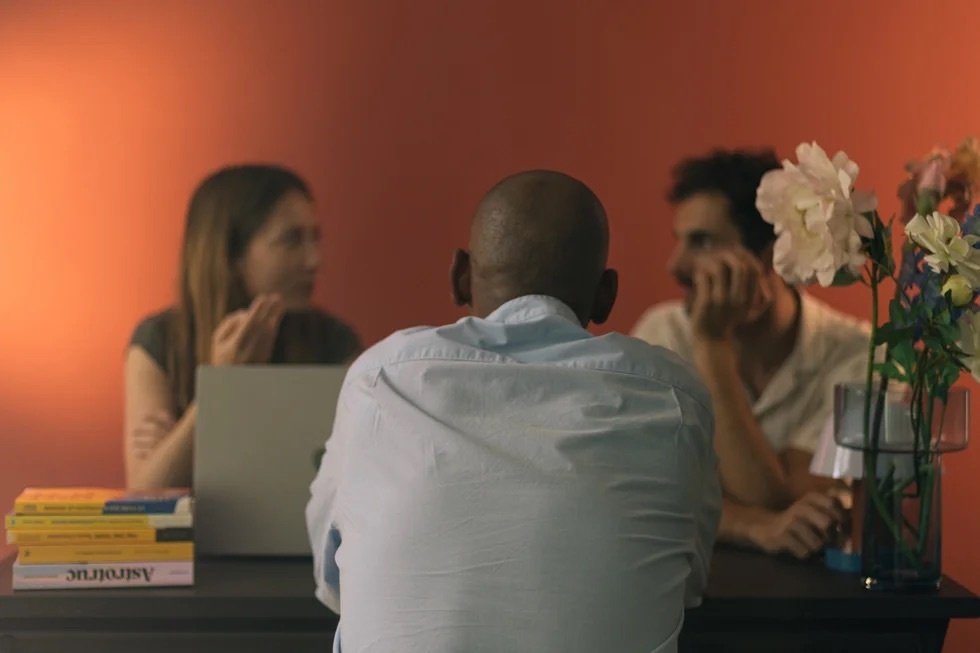Is honesty the key to discussing your weaknesses?
21. 8. 2024
5 min.


Freelance writer
What are your weaknesses? If you were asked this on a first date it might take you by surprise. In an interview, however, this question has become commonplace, yet it’s still nerve-wracking. As a job hunter, it may seem counterintuitive to talk about things that you could stand to improve on, and it’s challenging to frame your answer in a positive way. This question is not meant to trick you though, and there are ways to answer it with confidence.
What to avoid when answering this question
When an interviewer asks you to explain your weaknesses, they are looking for honesty, for you to show that you are self-aware and seeking ways to improve. “When interviewing, it’s essential to truly know yourself and authentically share what you’re passionate about—the good and the bad. Everyone makes mistakes, and hiring recruiters are looking for the real you,” says Brad Weins, a senior recruiter and career coach. “They want to see how your words and actions reflect your self-motivation.”
Don’t be cliché
Candidates should avoid answers like “‘I’m a perfectionist’ or ‘I work too hard’,” says Weins. “These responses come off as inauthentic.” Everyone has weaknesses and subverting the question like this only makes you seem disingenuous.
Don’t get off-topic
As is the case when answering any interview question, it’s important to be clear and concise in your answer. Failing to do so might make you seem less confident, or like you’re making something up instead of sharing a genuine weakness and how you overcame it.
Don’t undermine yourself
It is best not to mention a weakness that may disqualify you for the position. If you are interviewing for a statistics role, for example, and say you’ve never been good at basic math, you might run into an issue.
How to answer this question with confidence
An interviewer asking, “What are your weaknesses?” is looking for you to be self-aware and honest. The answer should not be a confession of incompetence, but a way for an interviewer to judge how well you can take a weakness, fix it, and potentially turn it into a strength.
1. “I have difficulty asking for help.”
Example answer: “I sometimes struggle with asking for help, especially from superiors. I enjoy solving a problem or finding an answer myself, and I often prefer to do that, especially when other members of my team are busy. However, this can take more time than just asking a coworker. In my last role, I worked very closely with my team and learned to just ask. If they are too busy to help, oftentimes they know someone else who will know the answer and be able to help.”
Why it works: Being independent is a great quality, but taking time to find an answer yourself can often lead to delays in projects. This answer is a great way to showcase that while you are independent and curious, you understand how important it is that tasks are finished on time and efficiently. This also shows an improvement in the confidence it takes to ask for help.
2. “I struggle to say no.”
Example answer: “I have trouble with saying no to requests, which often leads to me taking on too much. By learning to manage my projects, I can understand how much time I have on my hands and am available to help others. When I do not have the bandwidth, I ask if the task can wait until next week, if I may be able to delegate the task to a member of my team.”
Why it works: Though you want to showcase your strong work ethic, this answer also demonstrates that when you are overwhelmed, you know how to manage projects well. Any job worth having will care about their employees’ mental health and proving that you know how to be proactive in time management, and at the same time trust your team to handle tasks you may not be able to, is important in showcasing your efficiency.
3. “I have difficulty delegating work.”
Example answer: “I sometimes find myself struggling to delegate work to my team when I know that I can do it myself. This, however, leads to me taking on too much and burying myself in work. Additionally, it is important for my team to learn how to accomplish tasks for themselves. To help, in my last role, I created a project management plan which allowed me to oversee work being done but not be doing it completely alone.”
Why it works: This answer shows that while you may be hard-working to a fault, you sought ways to fix it and put a system in place to overcome an obstacle. Despite your weakness, you recognize the importance of other team members learning and showcase great initiative and leadership.
4. “I have limited experience in…”
Example answer: “In past roles, I have had limited exposure to Adobe Illustrator. Working closely with designers who are much better with the tool has allowed us to produce marketing pitches for clients at a faster rate. In an industry that uses this tool very often, I want to be able to use it or, even if I am not working with it every day, to understand it better. Now, I have a set time to go through the tool with my designers each week to learn more about it, and try to use it in my free time.”
Why it works: By admitting that you may not be the best at something, but proving that you are taking active steps to learn, you show initiative and an effort to go above and beyond. This answer also shows that you trust your team and are willing to learn from them.
5. “I have a micromanaging style.”
Example answers: “In previous roles, I have worked with managers very closely, with them overseeing all projects and deadlines. That experience, and the work ethic I gained from it, ingrained in me somewhat of a micromanaging style. Working with employees who do not thrive under that type of leadership, I have worked to establish more trust in them and leniency in my management style. I try to reassure myself that if I establish clear responsibilities and deadlines with my team, they will respect them.”
Why it works: If you are applying for a leadership role, this answer works especially well. It demonstrates that though you may have high standards for your team, you have a desire to learn from and trust in your employees, especially those you directly manage. It also shows that you are understanding of the fact that not everyone responds positively to certain management styles, and showcases your flexibility.
6. “I am timid when speaking in large groups.”
Example answer: “In certain situations, I lack confidence. For example, I have trouble speaking up in group settings, especially with higher-ups in attendance. I am confident in my ideas and my work but have trouble sharing them with others. To help with this, I try to speak up more when in smaller groups, which helps build the trust in myself that I can share when I am in larger groups as well.”
Why it works: Because you are confident in yourself and your ability, you want that to translate when presenting, especially in larger groups and to managers. By finding a way to start small and grow your speaking skills, you demonstrate to the interviewer that you are actively trying to improve not only your public speaking skills but also your confidence in doing so.
Photo: Welcome to the Jungle
Follow Welcome to the Jungle on Facebook, LinkedIn, and Instagram and subscribe to our newsletter to get our latest articles every week!

Další inspirace: Otázky na pohovoru

Why are you leaving your job? Here's how to nail the answer
Caught off guard by 'Why are you leaving your job?' Here's how to flip this tricky question into a spotlight on your goals and potential.
24. 12. 2024

Standing out in an interview: Creative responses to common questions
Answering common interviews with common responses isn't going to get you far in today's job market. Here's how to truly stand out!
26. 11. 2024

The Pratfall Effect: Can screwing up in a job interview make you more likable?
Mistakes you make in a job interview could actually work to your advantage ...
14. 10. 2024

How to bring up your long-term career goals in an interview
Be honest but strategic. The key is aligning your goals with the role while showing flexibility and ambition. Avoid faking it!
24. 9. 2024

The DEI-decoder: Assessing values during an interview
DEI is a crucial part of company culture. So, how can you evaluate it during the recruitment process?
02. 7. 2024
Zpravodaj, který stojí za to
Chcete držet krok s nejnovějšími články? Dvakrát týdně můžete do své poštovní schránky dostávat zajímavé příběhy, nabídky na práce a další tipy.

Hledáte svou další pracovní příležitost?
Více než 200 000 kandidátů našlo práci s Welcome to the Jungle
Prozkoumat pracovní místa